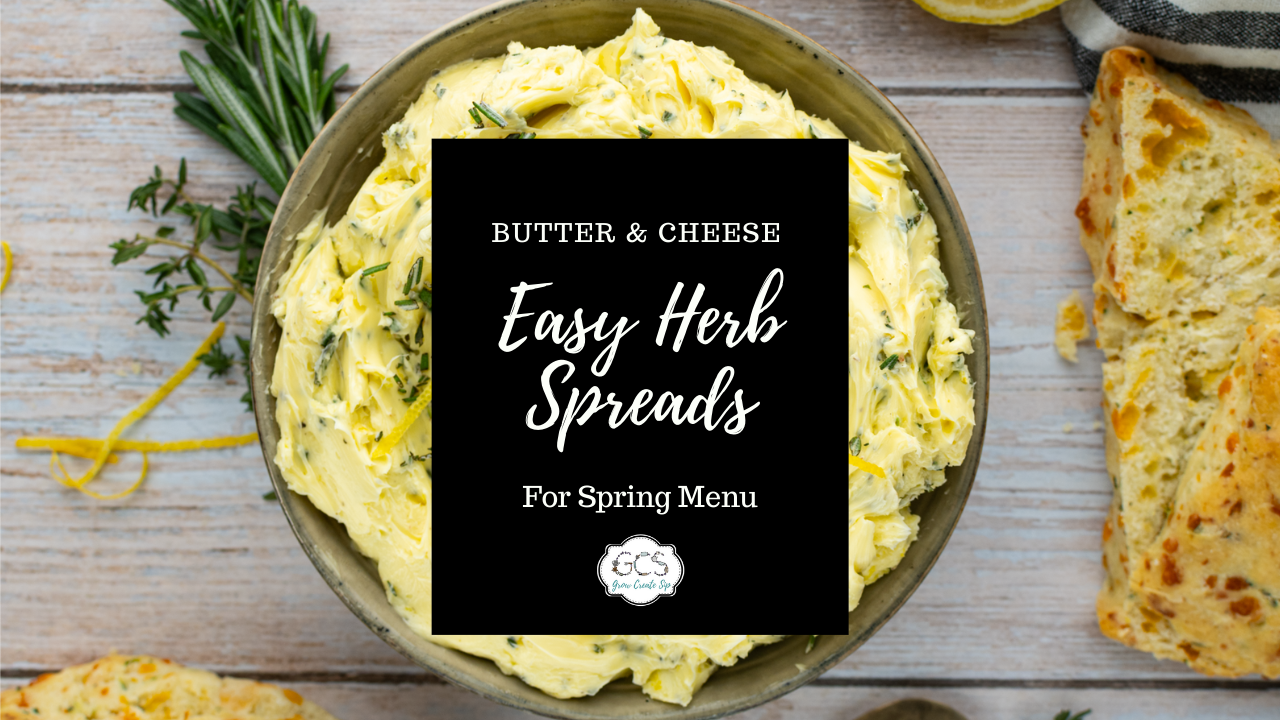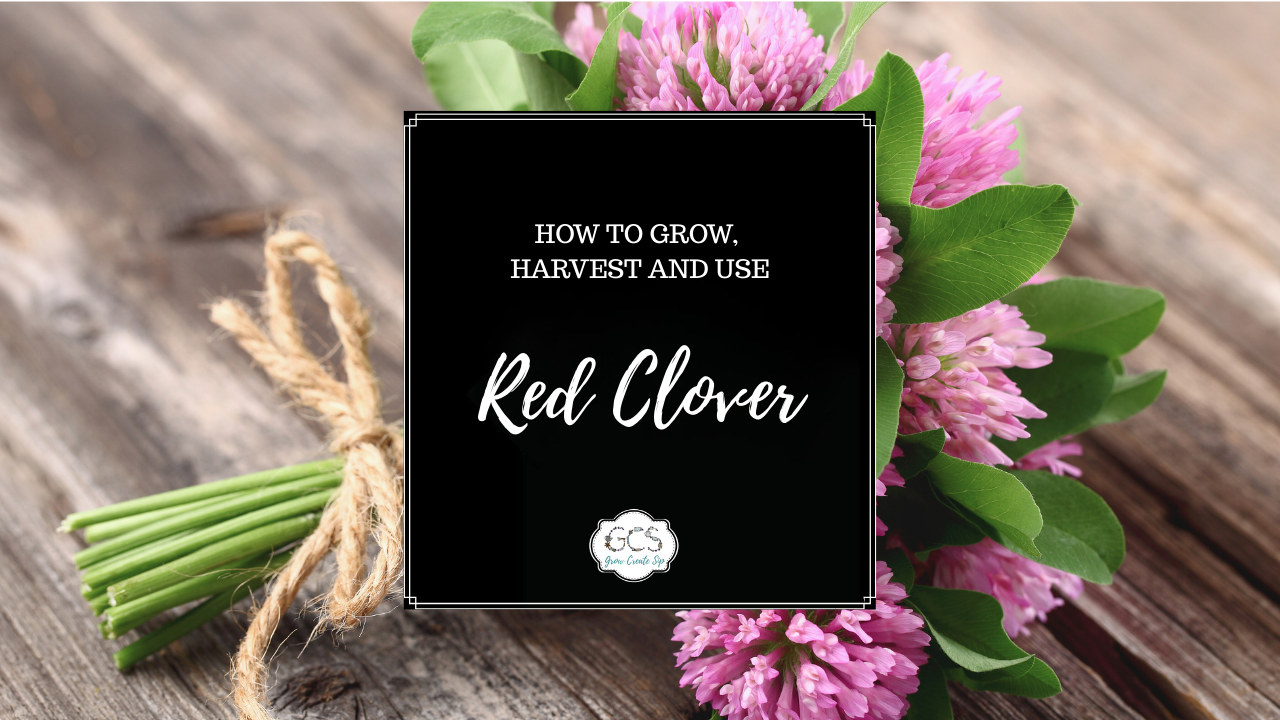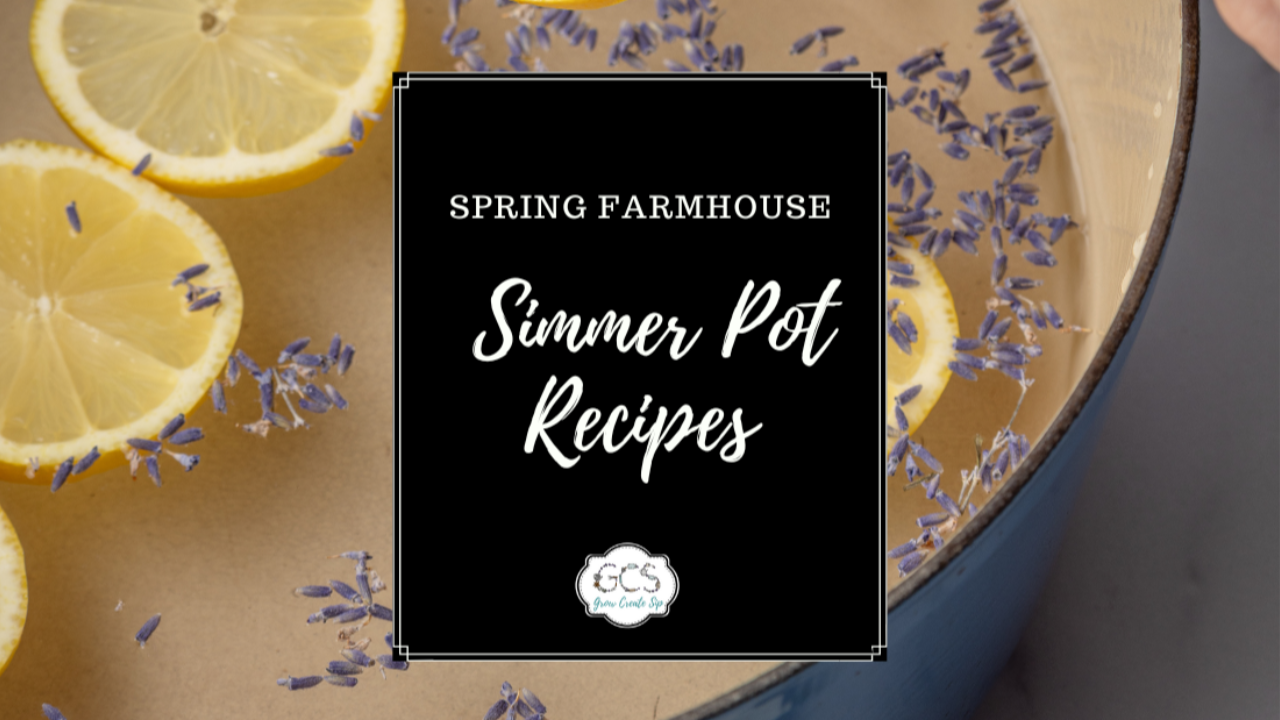DIY Herbal Tea for Flu & Cold Season
Oct 14, 2025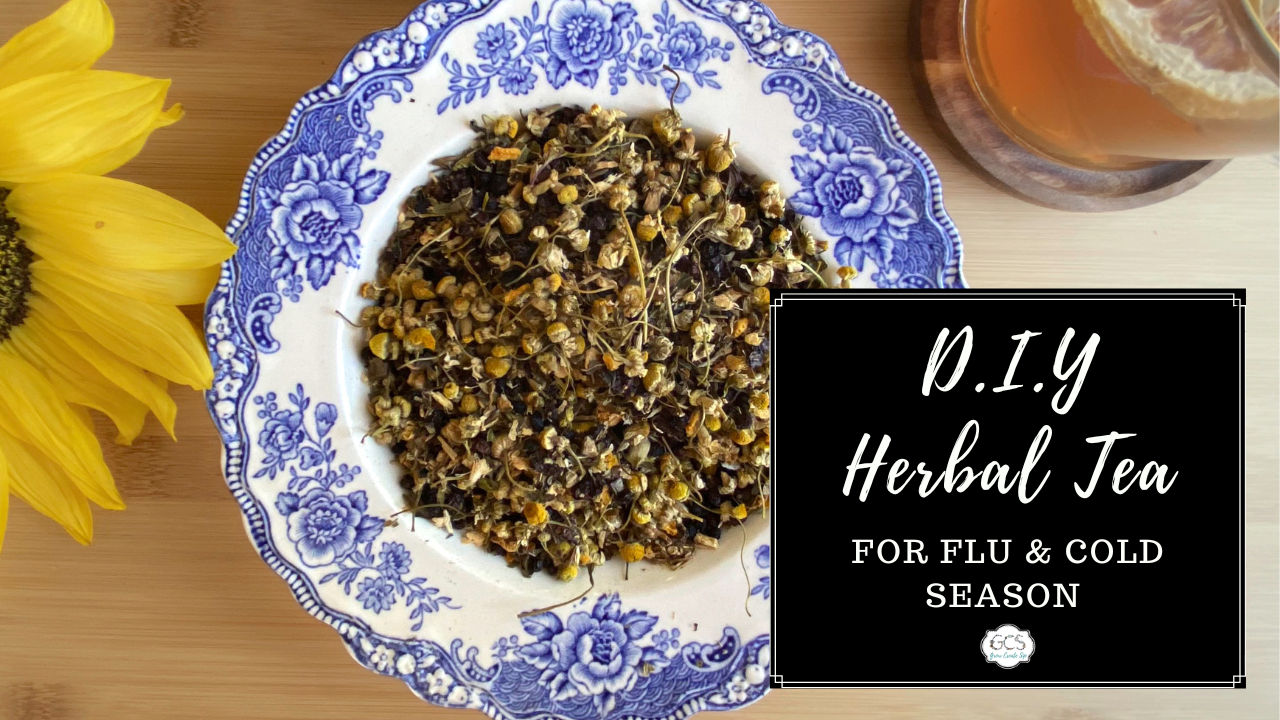
I don’t even want to think about flu season, but here we are in September, and if some sort of illness hasn’t hit everyone yet, it's a matter of when, not if. The most important thing to remember is that being ready for flu season is half of the battle. Making sure your immune system has everything it needs to be on top of its game just makes life a whole lot easier.
One of the best ways to prepare for flu season is to keep your diet on par with plenty of whole foods, pasture/grass-fed meats, and lots of fruits and veggies — especially apples this time of year. We also recommend stocking your apothecary with tinctures and teas like our breath well tea, nausea tea, and flu tea recipes.
I promise, if you do all these things before you need them, you will thank yourself later. Don’t wait until you need them, because after all, sickness is meant to be a time for rest, not for whipping up herbal concoctions.
In this guide, you will learn about the best herbs to use when making tea for pre- flu and recovery. We will also be sharing our own tea blend recipe that you can use to make the best hot tea for flu and cold season. With the right herbs, you can rest assured knowing that you have everything you need to be well.
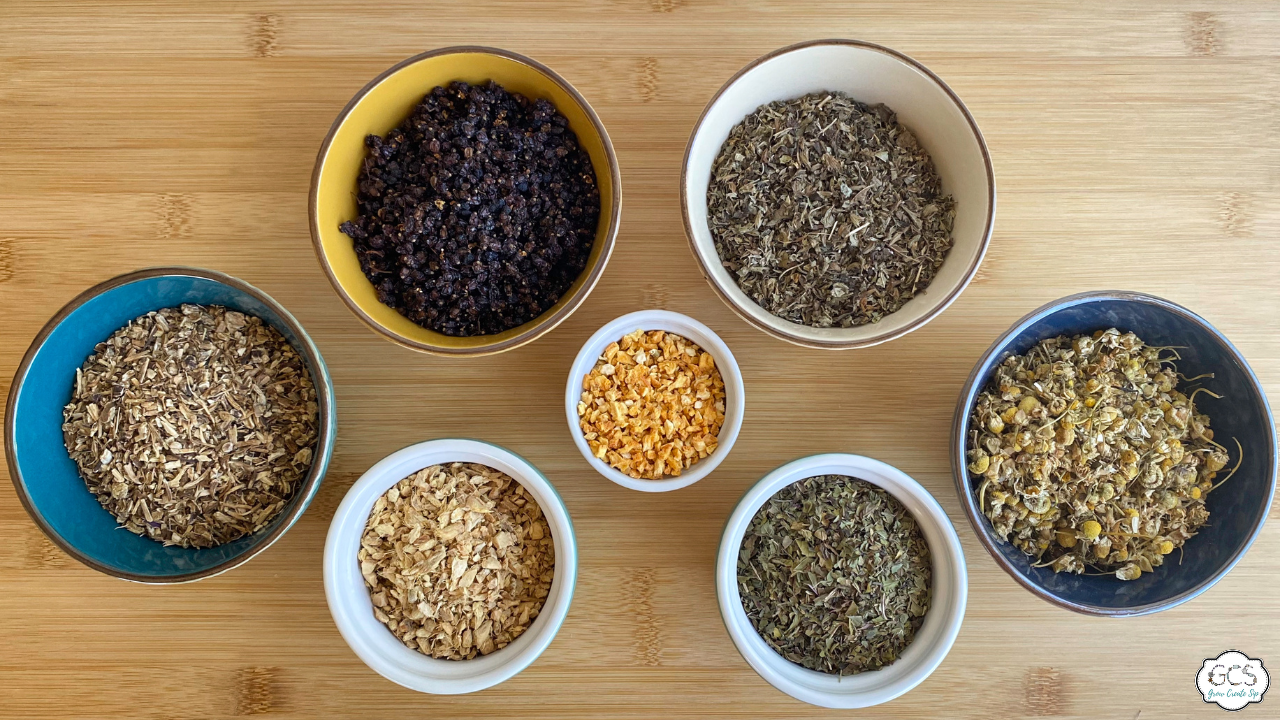
The Legal Stuff
This blog is provided by St. Fiacre's Farm LLC for informational purposes only. This information is for educational purposes only and is not intended to diagnose, treat, cure, or prevent any disease. Please consult a qualified healthcare professional before using herbs medicinally, especially if you are pregnant, nursing, or on medication. These statements have not been evaluated by the Food and Drug Administration. This product is not intended to diagnose, treat, cure, or prevent any disease. Please note that we may earn a small commission on any purchases you make through our affiliate links, at no additional cost to you. Thank you for your support!
Herbal Remedies for the Flu and Colds
Using herbs from the garden to make natural medicine is a beautiful way to make the most of God’s creation. Medicine made from herbs can be a lifesaver and such a huge help for anyone like me who has had countless negative experiences with prescription medicine.
When it comes to herbal remedies, there is truly so much that you can do! Herbal remedies can be made and used in different forms, and they sure do come in handy when you are dealing with headaches, colds, and other unpleasant ailments.
Salves can be used to manage cold and flu symptoms, including aches and congestion. Applying salves to your skin, like our Arnica Salve or Granny’s Everything Salve, will allow your body to absorb the benefits of the essential oils that are used to make them.
In addition to salves, you can also use homemade herbal tinctures as a form of natural medicine. Our First Signs Tincture Mix, like the name suggests, can be used at the first signs of illness to boost your immunity and prevent or reduce the effects of negative symptoms.
This list of remedies would, of course, be incomplete without herbal tea! Tea is my all-time favorite form of natural medicine, providing comfort and peace with every sip. Making tea for flu and cold season has helped me through so many sick days, and I hope that it can also be a blessing to you the next time you need it.
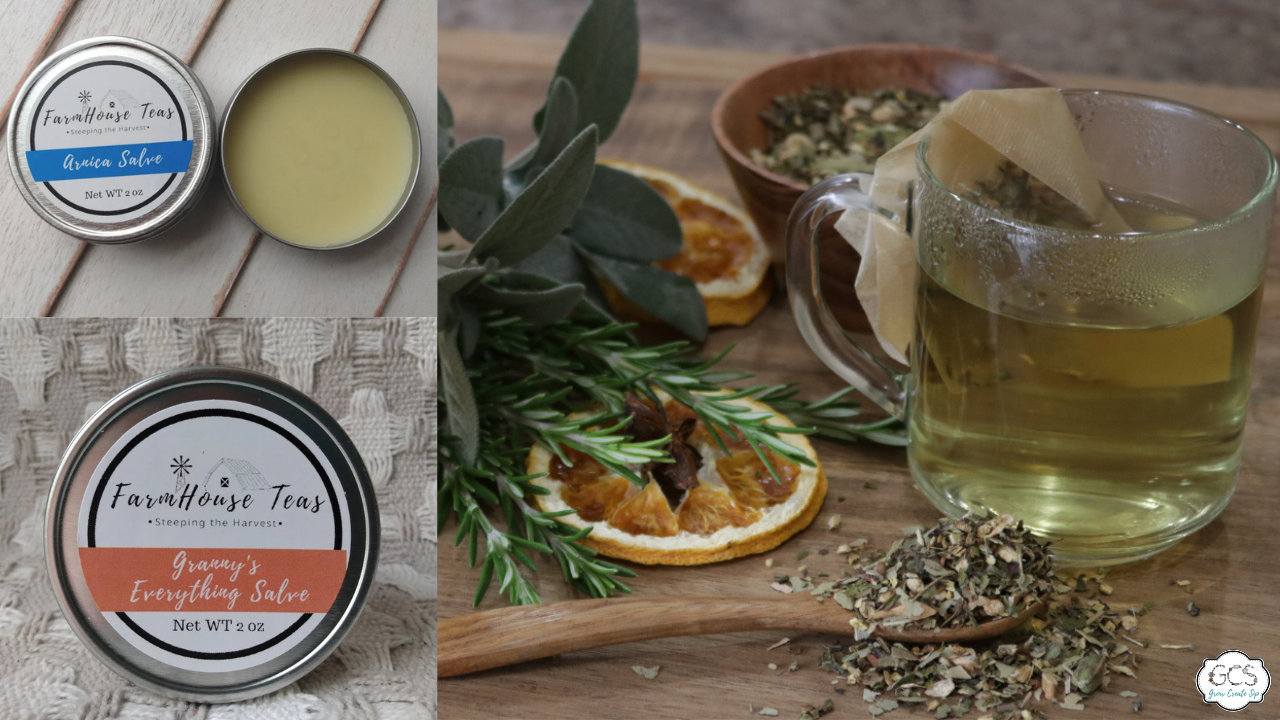
Benefits of Herbal Tea During Flu and Cold Season
If you make and store tea blends in advance, brewing the perfect cup will require minimal effort and take only a few minutes to prepare. Using herbal tea during flu and cold symptoms can help in more ways than one!
- Soothing: The herbs that are used to make tea often have medicinal properties for natural healing. For example, ginger can ease a sore throat, and peppermint can help with congestion.
- Decongestion: When you drink hot tea for flu support, the steam that is released from the tea can help congestion, loosen mucus, and ease sinus pressure.
- Boosting immunity: Many herbs contain vitamins and nutrients that boost your immunity and help the body fight against illness.
- Hydration: Staying hydrated is one of the most important parts of fighting sickness, and drinking lots of hot tea is one way that you can make sure your body gets enough fluids.
- Easier Nutrient Absorption: Steeping herbs in teas is one of the easiest ways to get the benefits of the herbs. As the hot liquid pulls out the constituents of the herbs, your body is more easily able to absorb them in warm water than if you ate them whole.
While herbal tea can certainly be part of a healthy recovery, it is important to remember that even the best tea for flu support should not be used to replace help from a trusted naturopath or functional medicine practitioner. Tea is a wonderful way to support the body during an illness or any time, but not a cure-all for sure!
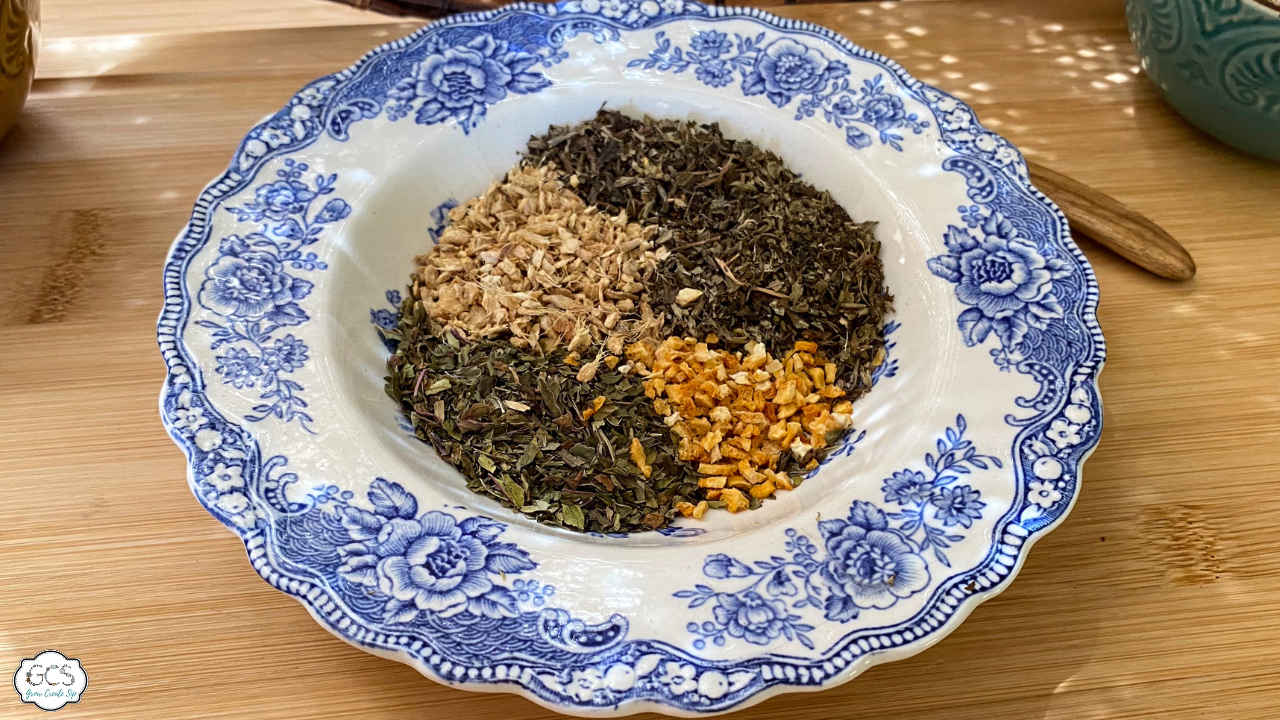
Best Herbs to Use in Tea for Flu
Here are some of our favorite herbs to use in tea for flu support. Some of these are my favorite while others are well known and have a lot of science to back them up. Once you have brewed your tea of choice, we recommend adding a drizzle of raw honey to taste. In addition to adding some extra flavor to your beverage, raw honey can also help soothe a sore throat, relieve an upset stomach, and reduce inflammation in the body.
Chamomile
Known for its calming and relaxing properties, chamomile is a versatile medicinal herb that soothes the body when you are ill. Because of its anti-inflammatory properties, making tea with chamomile can help ease indigestion and also provide relief to muscles if your body is aching. While this herb is a fabulous one to have on hand and so gentle, for myself, I'm not able to use it because of an allergy. Remember, just because it's natural doesn't mean that it is safe for everyone - even the gentlest chamomile. If you are allergic to the ragweed family, maybe skip this one.
Elderberry
Elderberries are rich in Vitamin A and Vitamin C, both of which help boost immunity. On top of this, elderberries also have antiviral properties that work to fight off infections. It may be helpful to incorporate tea with dried elderberries into your daily routine as a proactive measure to stay well, or to fight off cold and flu symptoms when they first start. We love growing our own elderberries here on our little farm!
Echinacea
You may know echinacea by its other name: coneflower! Echinacea is often used to support common ailments like the cold and flu due to being rich in antioxidants and having antiviral properties that boost the immune system. When used in herbal tea at the first sign of illness, echinacea can help reduce the duration and severity of illness. Echinacea is not an herb you will want to use long-term.
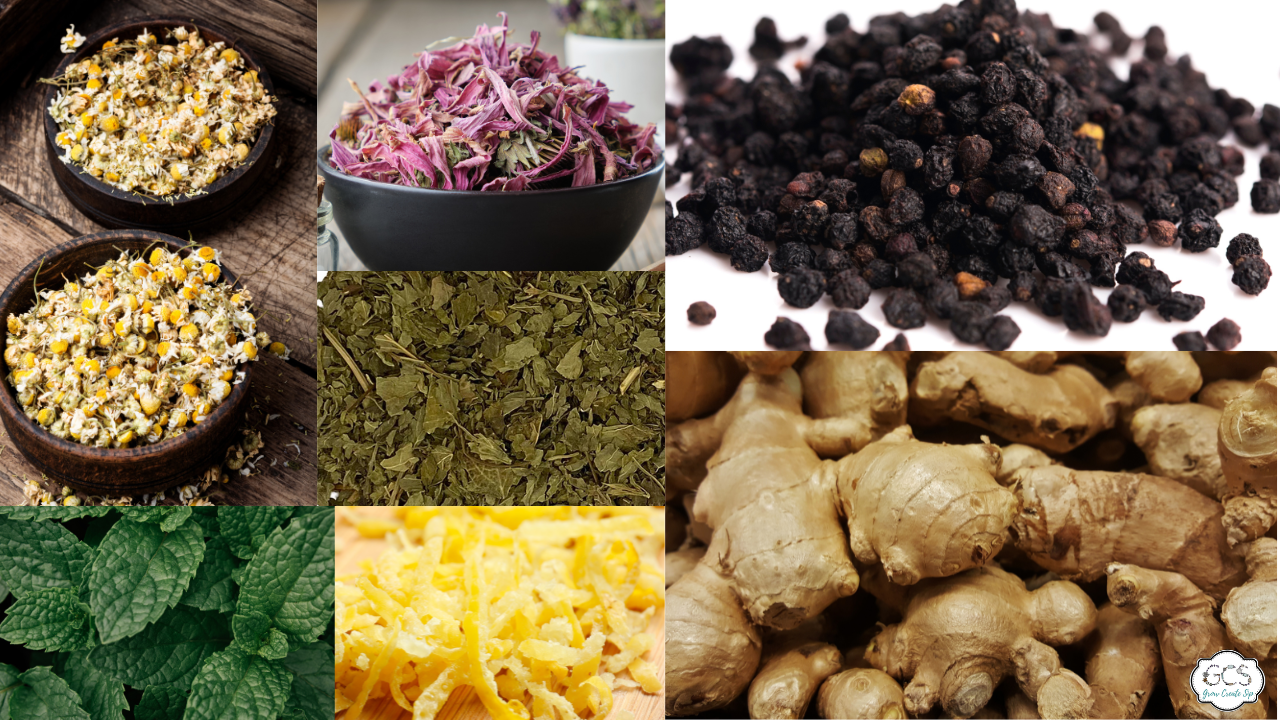
Lemon balm
One of the best herbs to use when making tea for flu symptoms is lemon balm. This herb is known for its antiviral properties and its ability to support fever reduction. Another great perk is its mood-boosting qualities! Drinking tea with lemon balm can improve your health greatly by supporting your nervous system. I always say, "Lemon balm brings calm!"
Ginger
A go-to herb for cold and flu relief, ginger provides respiratory support by clearing up congestion and loosening mucus buildup. Its antioxidant and anti-inflammatory properties can soothe irritation in the throat when used to make hot tea for flu recovery. The extra special thing about ginger is that most of us have it around in dried or fresh form!
Peppermint
Peppermint is a popular herb because of its soothing and calming properties. Incorporating peppermint into tea can be especially helpful for improving digestion and any upset stomach that you might have when fighting a cold or the flu. Peppermint is super simple to grow as well! Just be careful because it can take over any space you plant it in and is best planted in a pot.
Lemon peel
Did you know that the flesh of the lemon isn’t the only part of the fruit that has benefits? Lemon peel is packed with antioxidants and nutrients that support the immune system, and its antiviral properties also help fight against infection. Although this powerful herb is often overlooked, lemon peel can be used in tea to support digestion and immune function. I try to make sure I always have fresh lemon's around! If you don't have fresh, you can use dried peel, freeze-dried, or even preserved lemon.
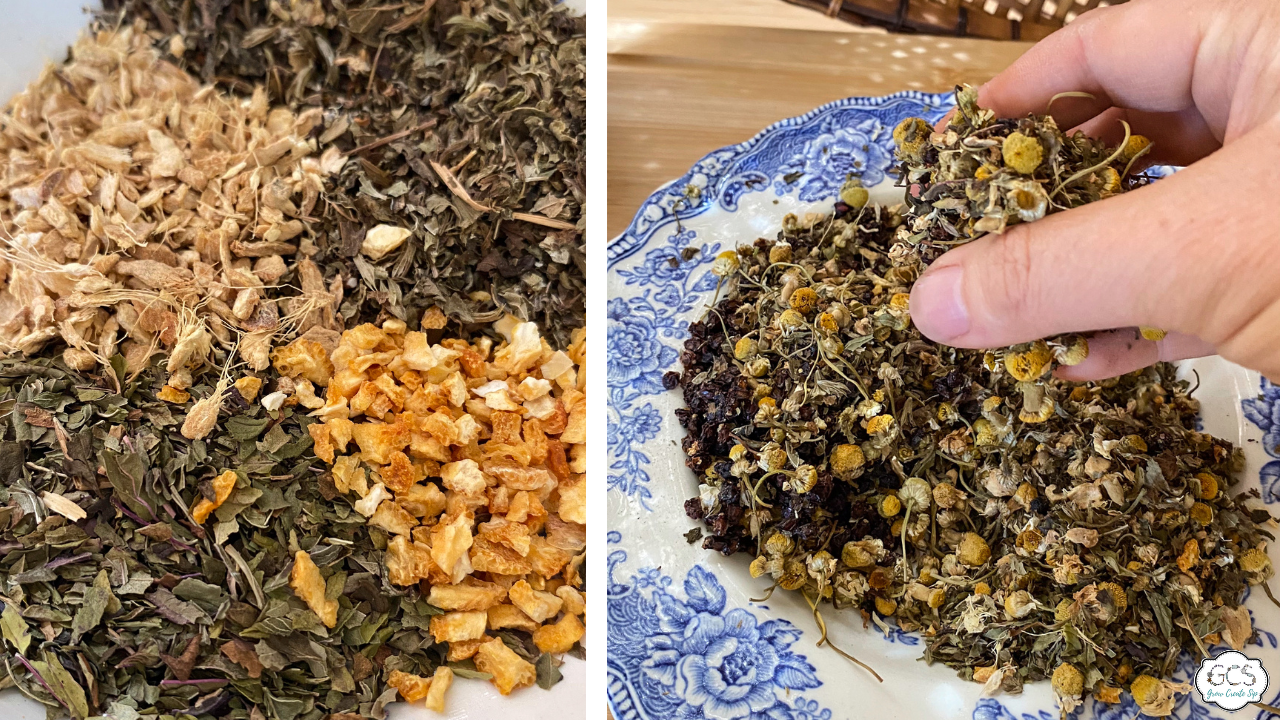
Best Tea for Flu Farmhouse Style
Our farmhouse-style recipe for healing herbal tea is a favorite for cold and flu season. This comforting tea blend brings together herbs that calm and soothe the body while supporting the immune system, healthy digestion, and decongestion. We recommend using our stainless steel French press for smooth and easy steeping! This recipe is formulated using our tea triangle. If you want to know more about the primary, nutrative, and catalyst herbs for making your own blends, make sure to check out this free guide for formulation using the tea triangle.
Tea for Flu Frequently Asked Questions
Should I make tea with fresh or dried herbs?
You can make tea with fresh or dried herbs, depending on what you prefer and have on hand! Here on the farm, we often use dried herbs to make our tea blends so that we can prepare and store them in advance, then brew a fresh cup anytime.
Can I make herbal tea for flu support in advance?
Yes, you can keep herbal tea in the refrigerator for up to two days, and reheat it gently on the stove when you are ready to enjoy it. Making a large batch of tea can be especially helpful when you are not feeling your best, as you can easily pour another cup without having to brew a fresh batch multiple times. Though here on our farm, we prefer fresh-brewed tea for the best flavor and most nutrients.
Can children drink tea for flu symptoms?
Some teas that are made with gentle herbs can be consumed by children over 1 year of age to help them fight off flu and cold symptoms. Chamomile and elderberry are often popular and appropriate choices for kids. Keep in mind that children under 1 year old should never consume raw honey. On our farm, we raised our children to enjoy tea of all kinds from a very young age, but we also taught them about how to use herbs safely.
The Herbal Medicine Cabinet
Stocking your apothecary with herbs and healing tea blends is one of the best steps that you can take to prepare for flu and cold season. I always find that colds and flus go better here on the farm with our little family when I'm prepared ahead of time. No one can think straight when their heads and noses are stuffy, they have headaches, and just want to sleep. Having this tea on hand and the ability and skill to make it come in super handy. Whether you use herbal remedies before, during, or after illness, herbal tea can boost your health and mood in a wonderful way when you need it most.
To learn more about how to make the best tea for flu and cold season, sign up for our FREE Tea Blending Workshop!
Read More About Herbal Care for Flu and Cold












